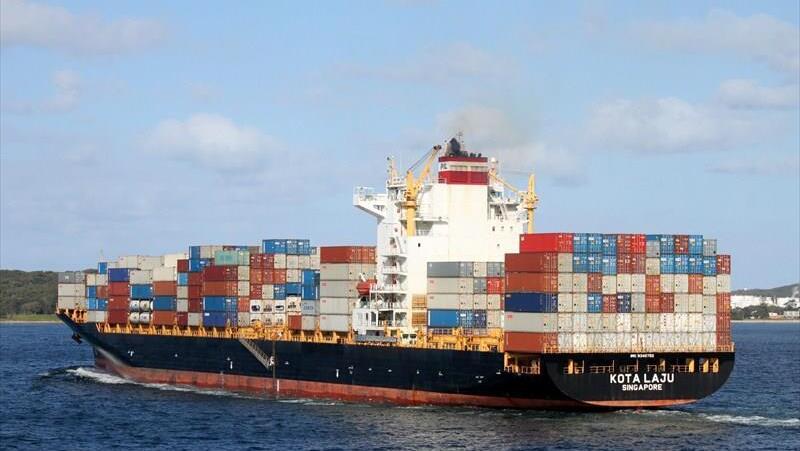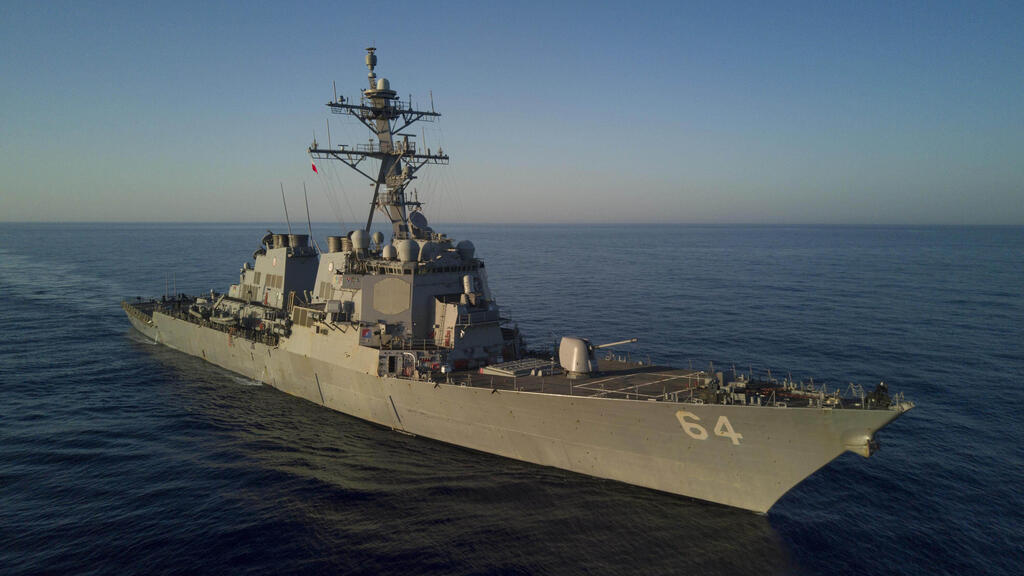Getting your Trinity Audio player ready...
The terrorist attack by the Houthis in Yemen, who are loyal to Iran, which hit at least three ships in the Red Sea that were "suspected to be Israeli," lasted about five hours and began Sunday morning in Israel, a US American official told the Associated Press. A U.S. warship shot down three drones in self-defense during the hours-long assault, the U.S. military said. The Iranian-backed Houthis claimed two of the attacks.
More stories:
The U.S. vowed to “consider all appropriate responses” in the wake of the attack, specifically calling out Iran, after tensions have been high for years now over Tehran’s rapidly advancing nuclear program.
2 View gallery


The cargo ship Number 9 it was hit by a surface-to-sea missile and was in danger of sinking
(Photo: MarineTraffic Mick Prendergast)
“These attacks represent a direct threat to international commerce and maritime security,” the U.S. military’s Central Command said in a statement. “They have jeopardized the lives of international crews representing multiple countries around the world.”
It added: “We also have every reason to believe that these attacks, while launched by the Houthis in Yemen, are fully enabled by Iran.”
The USS Carney, a Navy destroyer, detected a ballistic missile fired from Houthi-controlled areas of Yemen at the Bahamas-flagged bulk carrier Unity Explorer. The missile hit near the ship, the U.S. said. Shortly afterward, the Carney shot down a drone headed its way, although it’s not clear if the destroyer was the target, Central Command said.
About 30 minutes later, the Unity Explorer was hit by a missile. While responding to its distress call, the Carney shot down another incoming drone. Central Command said the Unity Explorer sustained minor damage from the missile.
Two other commercial ships, the Panamanian-flagged bulk carriers Number 9 and Sophie II, were both struck by missiles.
Houthi military spokesman Brig. Gen. Yahya Saree claimed two of Sunday’s attacks.
“The Yemeni armed forces continue to prevent Israeli ships from navigating the Red Sea (and Gulf of Aden) until the Israeli aggression against our steadfast brothers in the Gaza Strip stops,” Saree said. “The Yemeni armed forces renew their warning to all Israeli ships or those associated with Israelis that they will become a legitimate target if they violate what is stated in this statement.”
The damaged ship Number 9, a British-owned, Panamanian-flagged ship, was passing through the Yemeni area in the Bab al-Mandab strait when it was hit by a surface-to-sea missile and was in danger of sinking. The company that owns the ship later updated that it was making its way through the strait.
The ship did not visit Israel and did not transfer goods to or from Israel. Security officials discovered that the Houthis' original target was a partially Israeli-owned ship, but they misidentified it and attacked the British ship despite the fact that it had crew members from all over the world - but not from Israel. The mistake in identification is probably explained by the fact that, four years ago, the ship had a connection to Israeli ownership.
Another ship that was attacked by the Houthis, Unity Explorer, is also not Israeli and does not carry an Israeli flag bus is owned by a British firm that includes Dan David Ungar, who lives in Israel and is the son of an Israeli shipping billionaire, as one of its officers. No Israeli crew members were known to be on board.
Israel claims that though the Houthis are trying to attack ships that they believe have an Israeli affiliation, the vessels that have been attacked have a very limited connection to Israel - They are not sailing under an Israeli flag; there are no Israeli crew members on them; and the goods they are carrying are not destined for Israel.
The Houthi threat in the Red Sea and the shipping routes in the Red Sea have global economic consequences. The Zim company, for example, announced last week that it decided to change the sailing routes of its ships in light of the danger in crossing the Red Sea and the Arabian Sea. These changes can extend sailing times, and cause disruptions and delays in the delivery of goods. A senior Israeli official said Sunday night that "the world needs to wake up because the West will suffer significant financial damage due to the diversion of shipping lanes for fear of harm from the Houthis. The world will lose a lot of money from this."
Israeli security officials have called the actions of the Houthis in the Red Sea "pirate terrorism."
IDF spokesman Lt. Col. Daniel Hagari was asked Sunday night during statements to the press in Tel Aviv if the IDF intends to respond. "We are following the threats against the State of Israel, we are gathering intelligence and testing the capabilities. We will respond where and when it is right to do so," he said.
Meanwhile, a member of the political bureau of the Houthis, Muhammad al-Bohiti, said Sunday that his organization has decided to attack any Israeli ship, in a show of support for Gaza. He also threatened the American destroyers that protect the ships, and said that they too would be attacked. "The two ships were attacked to prevent Israel from using the strait for military or commercial purposes. We are not afraid of a reaction from the United States," he said.
"We have not yet been subjected to attacks, but we do not rule out an American or Israeli military response against us. We are committed to the safety of sailing in the Red Sea and attack only Israeli ships. Our goal is to stop the aggression against Gaza," he said.


